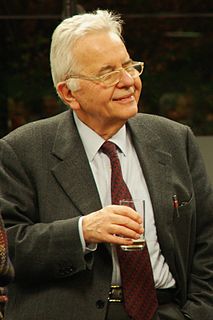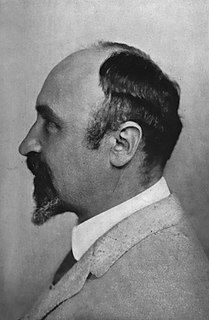A Quote by Nicola Cabibbo
Science that abdicates its cultural values risks being perceived as an extension of technology, an instrument in the hands of political or economic power. Humanity that disavows science risks falling into the hands of superstition.
Related Quotes
Science, unguided by a higher abstract principle, freely hands over its secrets to a vastly developed and commercially inspired technology, and the latter, even less restrained by a supreme culture saving principle, with the means of science creates all the instruments of power demanded from it by the organization of Might.
Knowledge is like a knife. In the hands of a well-balanced adult it is an instrument for good of inestimable value; but in the hands of a child, an idiot, a criminal, a drunkard or an insane man, it may cause havoc, misery, suffering and crime. Science and religion have this in common, that their noble aims, their power for good, have often, with wrong men, deteriorated into a boomerang to the human race.
The trouble is that the risks that are being hedged very well by new financial securities are financial risks. And it appears to me that the real things you want to hedge are real risks, for example, risks in innovation. The fact is that you'd like companies to be able to take bigger chances. Presumably one obstacle to successful R&D, particularly when the costs are large, are the risks involved.
Science merely amplifies the capabilities of human beings. Science gives us the ability to do ill and to do good more than we had, and to question science in this respect is like questioning whether people ought to have two hands or just one, because with two hands they could do more evil than they can with just one.
The basic question that the 'new science' raises for our balance sheet is the issue of what scientific questions have not been asked for 500 years, which scientific risks have not been pursued. It raises the question of who has decided what scientific risks were worth taking, and what have been the consequences in terms of the power structures of the world.
We are living in a society that is totally dependent on science and high technology, and yet most of us are effectively alienated and excluded from its workings, from the values of science, the methods of science, and the language of science. A good place to start would be for as many of us as possible to begin to understand the decision-making and the basis for those decisions, and to act independently and not be manipulated into thinking one thing or another, but to learn how to think. That's what science does.



































